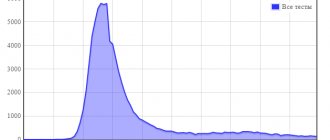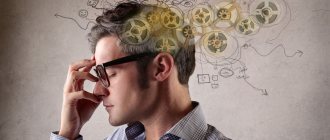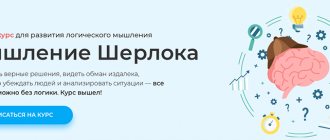Why you need to know about cognitive distortions
Errors need to be corrected.
And to do this, they need to be found. Cognitive distortions are cleverly disguised as normal thought processes - it will not occur to anyone that something went wrong in the reasoning. There are many cognitive distortions. Wikipedia lists 175 ways of self-deception - a huge number. Some are somewhat similar, some duplicate each other. It is impossible to learn and know everything all the time, but from time to time it is useful to look through the list of errors, find your favorites and get rid of them.
Why the brain loves to make mistakes
Every distortion is needed for some reason. They appeared during the development of the brain to help a person adapt to the world, not go crazy, and save energy and time.
Buster Benson, a trainer and blogger, spent a month studying and sorting them: he made a table, cleared out duplicates, grouped the main errors. He came up with 20 template scenarios according to which the brain works.
These scripts solve four main problems:
- How to cope with information overload.
- How to act when you don't understand anything.
- How to act quickly.
- How to remember the important and not remember the unnecessary.
Today we will look at cognitive distortions that solve the first problem.
The first problem of the brain: too much information
Every day, the brain digests a ton of data, from how bright the sun is shining to the thoughts that pop into your head before going to bed. To avoid being overwhelmed by information, you have to choose what to think about and what to ignore. The brain uses several tricks to pull out important information.
We notice information we already know
Repetition helps you remember - this rule works even if we don’t specifically memorize the information. It is convenient for the brain to notice what it already knows. This feature is supported by several distortions.
Availability heuristic . We label any new information, relying on memories and associations that arise in memory on their own. There is a logic to this: if something can be remembered, it means it is important. Well, or at least more important than what is difficult to remember. And what arises in memory on its own? What got you hooked. What happened to you or your loved ones. Something you can see, touch, smell. In general, poor personal experience. This is what we use to understand all new information.
For example, a specialist I know went to the capital and got a great job there. And it seems to us that all residents of the capital occupy a cool position and receive a huge salary.
Base percentage error. We ignore statistics, but pay attention to special cases and draw conclusions based on incomplete data. For example, after getting a flu shot you get a cold, which means you will consider it harmful. Statistically, vaccination saves millions of lives, but you don’t care: cognitive distortions don’t care about the truth.
Deviation of attention. We notice what we think about. We pay attention to what excites us, and if something is not interesting to us, we won’t see it. Anyone who thinks a lot about clothes and is interested in brands will immediately notice a new bag from a colleague and will pay attention to the clothes of others. Those who do not celebrate holidays forget to congratulate friends and relatives - this is simply not part of their interests.
The illusion of frequency. We begin to notice the subjects we are studying and which have recently interested us. For example, you read an article about a healthy lifestyle and decided to go in for sports, consider BZHU. And suddenly it turned out that there was a fitness center or sports nutrition store on every corner. Didn't they exist before? There were, but you didn’t pay attention to the shops and gyms.
The effect of imaginary truth. The tendency to believe information that is repeated many times. It has long been known: if you tell a person a hundred times that he is a pig, the hundred and first time he will grunt.
The imaginary truth is actively used for propaganda, because it is so convenient to force people to believe in something by repeating it many times.
The effect of familiarity with the object. From several objects, we choose the one with which we are already familiar or have heard about. And the better we know something, the more we like it. Advertising works on this distortion: we heard about washing powder, came to the store and bought it simply because it seems better, because we know at least something about it. And time after time we buy this powder without trying others: so what, we’ve been using it for a long time. This distortion protects you from rash actions, but remember that the best is the enemy of the good.
Context effect. The environment influences the perception of stimuli. Even mental abilities depend on the environment: it is more convenient to read and remember text in a bright room and in silence, rather than in a stuffy subway. This effect is also used in marketing. If you come to a store and choose goods in a pleasant environment, then you agree to a higher price. One of my friends was selling an apartment and before the buyers arrived, she baked cinnamon and vanilla buns. The apartment was filled with a pleasant aroma and warmth. As a result, the housing was sold at one and a half times the market price, and this was only thanks to the buns.
Forgetting without context. The brain does not know how to search for information using keywords. Sometimes you need to remember something important, but you can’t. An association is required to pull out the necessary information from memory. For example, during an exam, a definition just doesn’t come to mind, but the rustle of the notebook pages or the smell of paper reminds you of how you wrote notes, how you learned the terms - and here it is, the definition.
The stimulus that helps you remember everything is various irritants - from sounds and smells to your mood.
The empathy gap. We underestimate the influence of internal factors on behavior. Even such banal things as hunger and thirst. The well-fed does not understand the hungry - literally. When you want to yell at someone, maybe you should have a snack or a nap instead of swearing. Therefore, we do not understand other people's actions. We don’t know in what state the person committed them.
Underestimating inaction. We condemn harmful actions. But no less harmful inaction - no. “But I didn’t do anything!” - What is there to blame a person for? Therefore, when we need to act, we stand on the sidelines and do nothing. It's safer this way.
We only notice unusual things
Bizarre, funny, bright, eye-catching information is more noticeable than boring and routine information. The brain exaggerates the importance of everything amazing and misses everything ordinary.
Isolation effect. Isolated and non-standard objects are remembered better than similar ones. It's like a number in a row of letters, a joke in a boring lecture, a noticeable package on a shelf with identical products. And if all the packaging is bright, then the minimalist one will stand out. This also includes the image priority effect: pictures are remembered better than text. And even more so with a picture in the text.
Self-reference effect. The more strongly new information is connected to us, the easier it is to remember. If the hero of a book is like us, his adventures remain in the memory for a long time.
The effect of involvement. We believe that the work or thing that we have created is more important than the things that others have created. This is our child who is the best in the world, our project is the most useful, our department works harder than anyone else for the benefit of the company.
Tendency towards negativity. We overestimate the importance of negative things. That’s why crime chronicles are so popular, and that’s why people are drawn to watch talk shows in which everything is very bad for the heroes. Moreover, one minor flaw can cancel out many positive features. This is the fly in the ointment that spoils everything for everyone. A wonderful person picks his nose in everything, and we consider this an indicator by which even his work should be assessed.
We only notice changes
We evaluate things and events not by what they are, but because of what happened to them. If something good happens, we consider the whole event positive, and vice versa. And when we compare two things, we look not at their essence, but at their differences. Difficult? Let's look at examples.
Anchor effect. Distortion when estimating numerical values. If we are introduced to an object and a number is indicated next to it, then we will make a decision based on this number. For example: a charitable foundation sends letters asking to donate money, any amount, no minimum limit. But in one letter the foundation writes: “Give me at least 100 rubles,” and in another: “At least 200 rubles.” The person who received the second letter will pay more.
This distortion is used in advertising and in stores when indicating a discount on a product.
Contrast effect. Everything is relative. And our assessment of the event depends on this comparison. For example, a person is happy that he bought something in a store, but stops being happy after he finds out that in a neighboring store the same thing costs half as much.
Framing. We react to an event depending on how it is described, and we know how to change our attitude towards the situation. The classic example is: the glass is half full or the glass is half empty. After losing money, you can say: “We lost half of the capital,” or you can: “We managed to save half of the funds.” In the first case we lost, in the second we won, although there was only one event.
Conservatism. When we receive new data that contradicts the existing picture of the world, we process it very slowly. And we change our views even more slowly. We master information that does not violate old beliefs faster. And all because of laziness: it is much easier not to notice the data than to change your views.
Money illusion . We evaluate the amount of money at face value. A million is a lot. Although, if you look at it, it’s not that much, especially if it’s a million in a weak currency. We value a number, not the actual value of money. And their real value consists of how many goods can be bought for this amount.
Biased assessment of differences. When we look at objects separately, we notice fewer differences between them than when we compare them at the same time. Sometimes it's impossible to tell twins apart, but when they're close together, you can't confuse them. Or sometimes dinner doesn't seem so greasy. Just think, it’s just durum wheat pasta and a cutlet. But if you compare such a plate with salad and chicken breast, you can immediately see the difference.
We love our beliefs
We love advice that prompts a decision that has already been made. We spit on details that contradict our beliefs.
Confirmation bias and selective perception. We look for information that confirms knowledge and position. This is the cause of eternal disputes and irreconcilable hostility. Let's say a person decides that a conspiracy is to blame for all his troubles. He will find evidence that this is exactly the case. Any arguments from opponents will fall on deaf ears or he will say that opponents are the main conspirators.
Distortion in the perception of choice . First we make a choice, then we justify it. First we buy a thing, then we figure out why we need it.
The worse the choice, the stronger the fantasy plays out in search of reasons that will justify our actions.
Ostrich effect. And this is the reason why we do not notice negative information that speaks about our choice. Like in childhood: since I don’t see you, then you don’t see me, I’m hiding.
Observer expectation effect. Our expectations determine our behavior. If we believe that regular jogging will help us lose weight, we exercise more often than if we do not believe in success. This also works in the opposite direction: if we don’t expect to be able to complete a task, then we do it somehow.
We notice other people's mistakes
But we don’t want to admit ours. So before you think you're surrounded by idiots, look at yourself. Maybe you missed some distortion?
Blind spot. We do not see cognitive distortions in our own thinking. What makes them so insidious is that they are difficult to find.
Naive realism and naive cynicism . Who do we consider a normal person, a reference point by which we evaluate everyone and everything? Of course, myself. And anyone who disagrees with us is wrong.
Love for your own beliefs
We like recommendations that themselves suggest a decision that has already been made. And we don’t notice details at all that conflict with our own beliefs.
Examples of distortion:
- Confirmation bias or selective perception . We are looking for information that will confirm our knowledge and position. For example, a bad period came, a person decided that everything was to blame for a conspiracy from a bad person. He will start looking for information and find evidence for his conviction. If they start telling him that this is not so, his opponents will become enemies.
- Distortion and the perception of choice . We first choose, and then we look for excuses for our choice. Or we first buy a thing, often impulsively, and after the purchase we figure out why it is needed.
And the most interesting thing is that the worse the choice made, the stronger the fantasy unfolds in search of reasons that justify the action.
- Ostrich effect . It is human nature to not notice negative information that indicates the choice made.
What to do with this information
Read and re-read. Only those errors that interfere with the perception of information are listed here, and they can be divided into four groups:
- We don't like new information.
- We pay attention only to the unusual, but do not think about the routine.
- We do not know how to objectively compare objects.
- We don't notice our mistakes.
You cannot draw correct conclusions from false data, no matter how hard you try. This is why these cognitive distortions are so dangerous: we build a picture of the world that cannot work.
If the next time you make a decision, you remember a few biases and can correct them, then you will make the right choice. And we will tell you what other distortions there are in the world.
Block 5. Cognitive thinking errors. Mental virus.
Such contexts of mixing and comparing abstract levels permeate human social life, sometimes creating critical situations for the continuation of the lives of both one’s own and other people! This is not some problem from the field of metaphysics or philosophy or theory! This is a real MENTAL VIRUS - a mixture of levels of abstractions. Almost all of us were initially infected with this virus! And the formation of immunity to this virus lies in the plane of awareness of one’s own identification stereotypes and the daily hygienic “destruction” of this pattern, by separating levels of abstraction and excluding comparison of different levels with each other!
LUDWIG WITGENSTEIN. "Logical-Philosophical Treatise".










